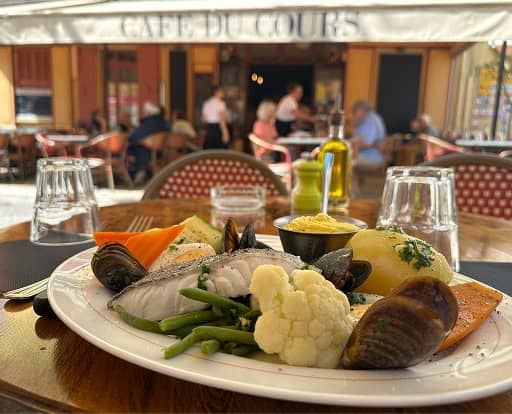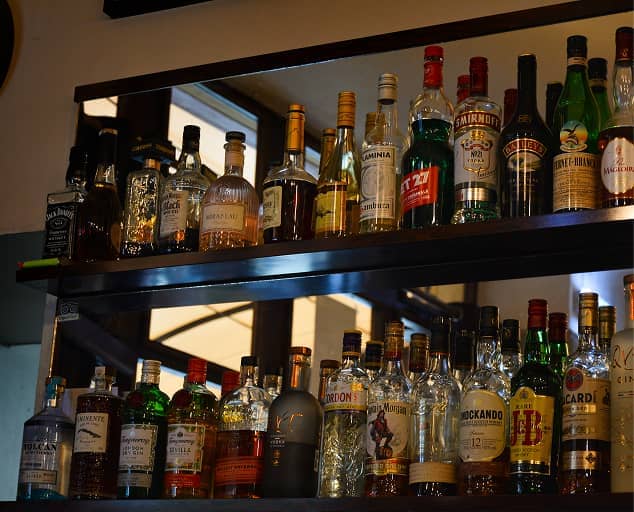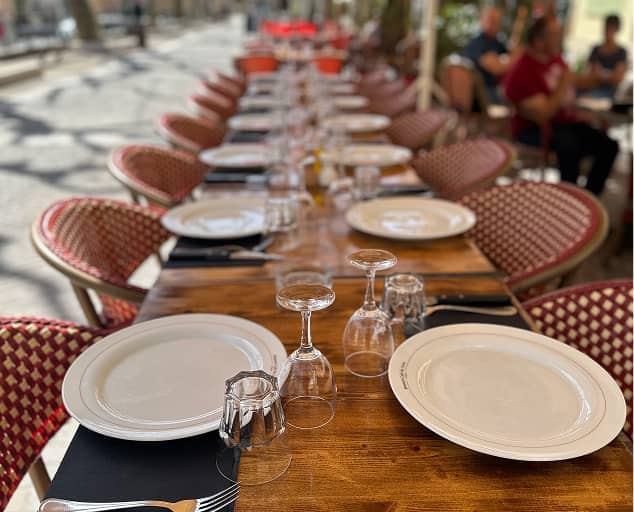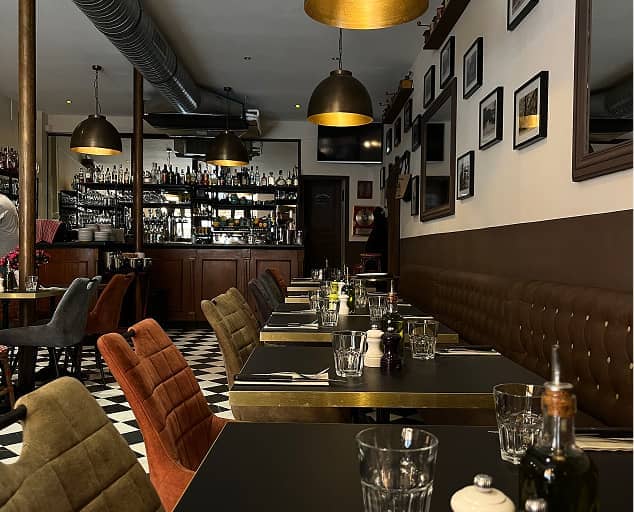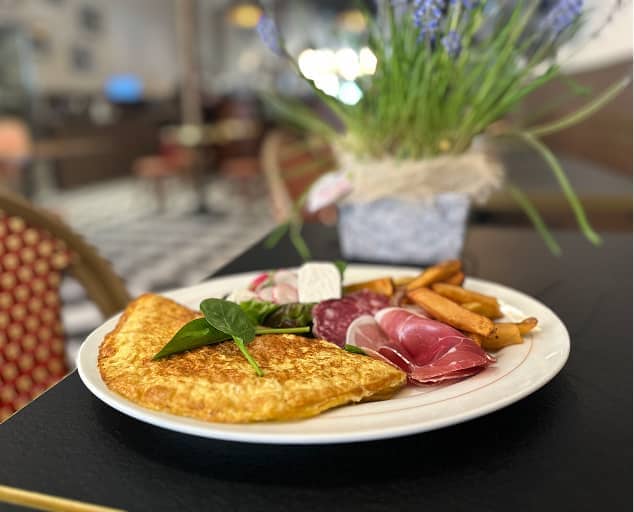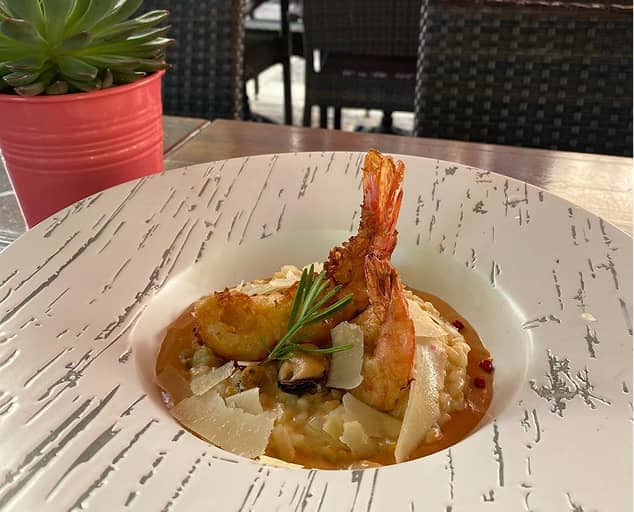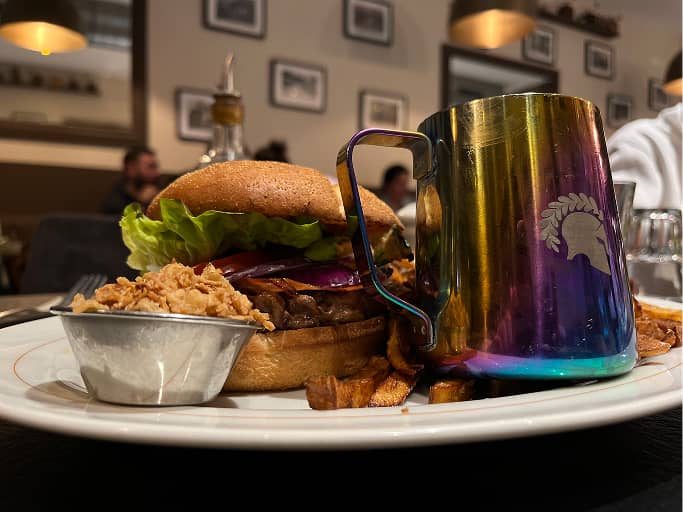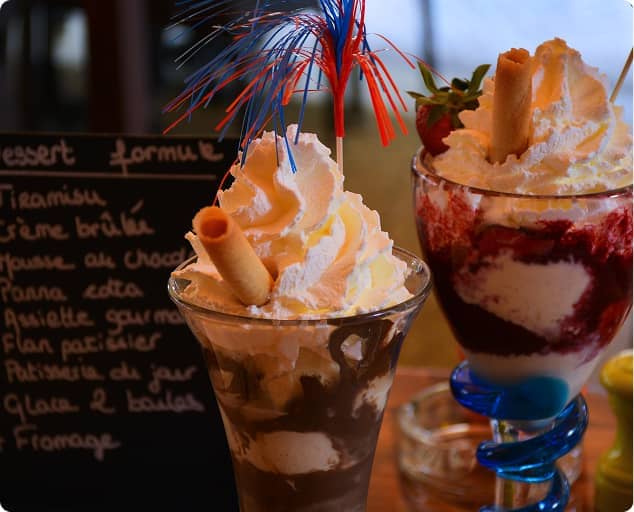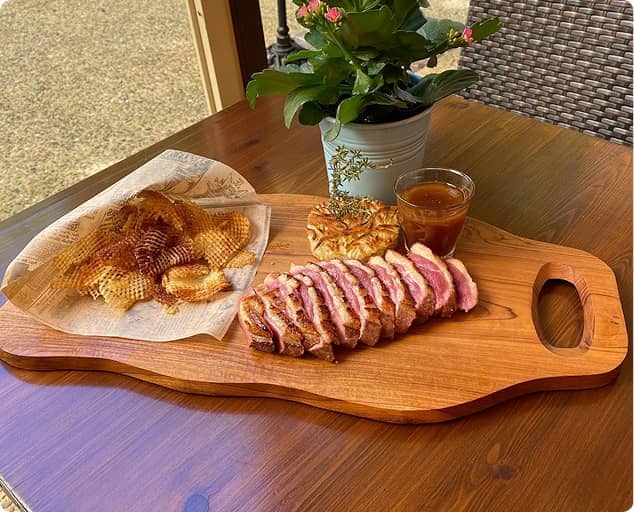Part of Cotignac's
Most Iconic Restaurant

After the hardships of war, France begins to rebuild.
In 1951, Émile Vacca, a pastry chef by trade, decides to rent the Café du Cours from Monsieur Fabre. With passion and determination, he learns the art of cooking on the job.
Success soon follows! The establishment quickly thrives. Impressed by this achievement, Monsieur Fabre offers Émile the opportunity to purchase the building. Émile—affectionately called Mile—along with his wife Rose and their son René, eagerly accept.

The Café du Cours soon becomes much more than just a café. By 1953, it transforms into a true restaurant, serving authentic Provençal cuisine.
During the week, guests enjoy traditional local dishes, while weekends are dedicated to specialties like truffle scrambled eggs, Armorican-style crayfish, hunter’s rabbit, homemade desserts, and ice creams.
From festive meals and celebrations to card games, communions, and even the founding of a football club, the Café du Cours becomes a vibrant hub of life and conviviality.

For 30 years, the establishment thrives. René and Rose welcome guests at the counter or on the terrace in summer, while Émile, supported by Maryse, René’s wife, delights diners from the kitchen.
Émile, the patriarch, passes away in 1980.
Yet, the story of the Café du Cours lives on within the family. Several managers take turns preserving the soul of this beloved Cotignac institution.
In 1992, Émile’s granddaughter, Laure, and her husband, Franck, take over.
For 23 years, they uphold tradition, keeping the Café du Cours shining until its sale in 2015.

Today, the adventure continues with Delphine and Cédric, a couple of restaurateurs from the southwest of Tarn.
In 2018, captivated by the charm of Cotignac and its iconic Café du Cours, they purchase the establishment from Emmanuel Mendes, aka Manu.
Over time, the Café du Cours had become a brasserie.Delphine and Cédric bring fresh energy while honoring its history and authenticity.With their expertise and passion, they transform the Café du Cours into a warm and inviting place where tradition and conviviality come together.
Do you wish to be part of this story?
Nestled in the Heart of the Var
At the gateway to the Haut Var, halfway between the gorges du Verdon and the Mediterranean Sea, lies the village of Cotignac.
This quintessential village of Provence Verte is located right at the foot of a majestic tuff cliff.As you wander through its colorful, cobbled streets, you’ll discover refreshing fountains, charming shaded squares, and unique troglodyte houses carved into the rock face.
From the top of the cliff, prepare to be amazed by a breathtaking panorama: a sea of rolling hills dotted with olive trees, cypresses, and pines—bathed in the gentle scent of Mediterranean vegetation under a brilliant blue sky.
You’ll find us right in the heart of this village, on its central square: the Cours Gambetta.
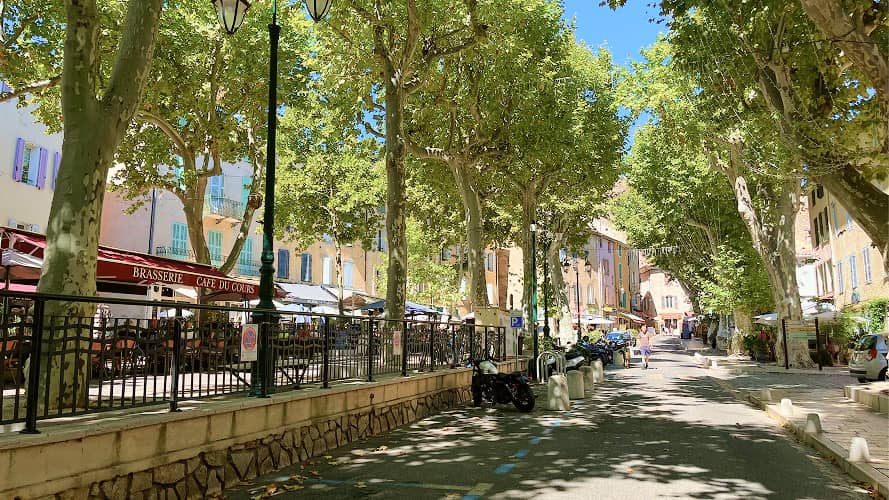

Services

Terrace
Nearby parkings

Restrooms
Free Wi-Fi
Hours

Closes Tuesday at 3:00 PM, all day Wednesday

Brewery: 8:00 AM - 11:00 PM
Restaurant: 12:00 PM - 3:00 PM, 6:30 PM - 9:30 PM
Accepted Payment Methods

Credit card

Cash

Check

Chèque vacance®

Ticket restaurant®

American Express®

Apple Pay®
